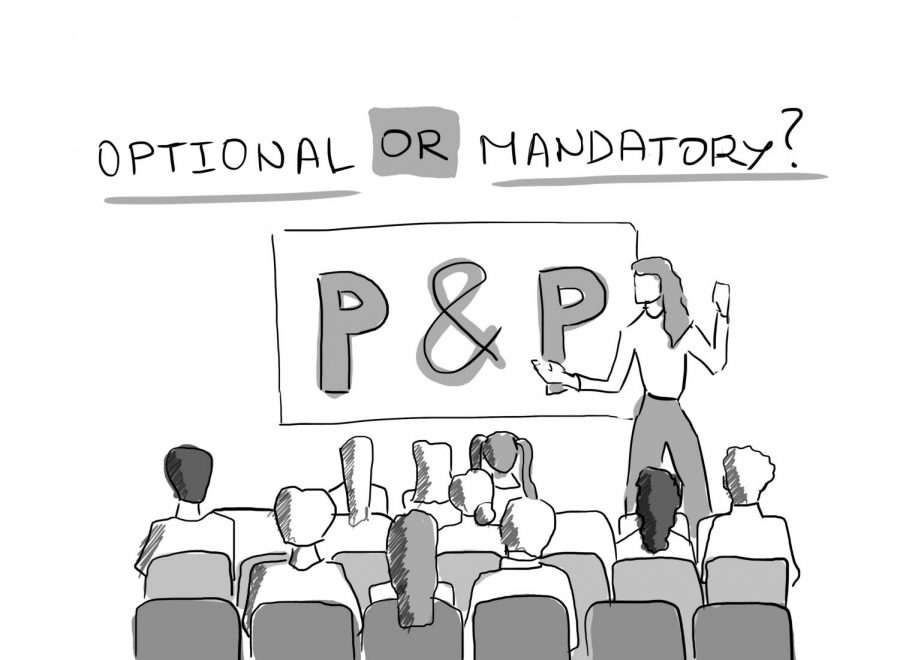Should Power & Privilege be mandatory?
February 20, 2020
This year’s Power & Privilege (P&P) Symposium theme is “build bridges and not walls.” As you attend sessions and consider this structural metaphor, I would like you to think of the symposium’s actual structure. While P&P sessions tackle the controversies of Greek life and queer faith, I would like to tackle a controversy of my own: should the Power & Privilege Symposium be mandatory?
While Power & Privilege is by no means perfect, I believe compulsory attendance should be a goal for the symposium. As it stands, P&P is not getting the attention it deserves from students and the administration. We go to check boxes, not to deal with major issues. We treat P&P like a day off when it is supposed to be a time to listen to other perspectives and critically engage with our community.
The symposium will never do what it has set out to achieve unless attendance is required. It will never succeed in having these challenging conversations unless the people who need to be challenged actually show up. Of course, if you have a good reason for abstaining from the conference, like moral or accessibility concerns, you should not be forced to attend.
Though P&P is not mandated by the college, it is often mandated by professors. This produces some air of obligation, but it completely misses the point. Presenters do not lead sessions so their perspective can be capitalized on and discussed in class. If students attend P&P as a homework assignment, they cannot fully engage with the content of the sessions.
Power & Privilege should be mandatory because it is important. However, for P&P to be required, a couple of things need to change.
First, the students planning and participating in the conference should be compensated for their work. By not paying everyone involved with P&P, we reify the oppressive structures the symposium was designed to combat. The executive team and session leaders put an immense amount of emotional and physical labor into their sessions. The symposium can only move forward when all students involved with the conference are paid and appreciated for their work.
Second, the symposium should be given more institutional support. If you cringed at the thought of P&P becoming more institutionalized, I’m right there with you. I don’t want the Whitman administration or ASWC to have anything to do with P&P, but if this college is going to profit off of the work of its marginalized students, it should do more to support them. Allowing P&P to happen is not enough. This institution can and should do more.
Countless students have led vital sessions with little to no thanks or support from the community. Countless students have spent hours organizing the symposium, with measly pay and even less gratitude. They deserve more than what we are giving them. They deserve better.
So, yes, P&P should be mandatory. P&P is a space for silenced and ignored students to share their voices. We should value the symposium for the communal resource that it is, but until we do, we need a structure that forces us to listen to these voices.






